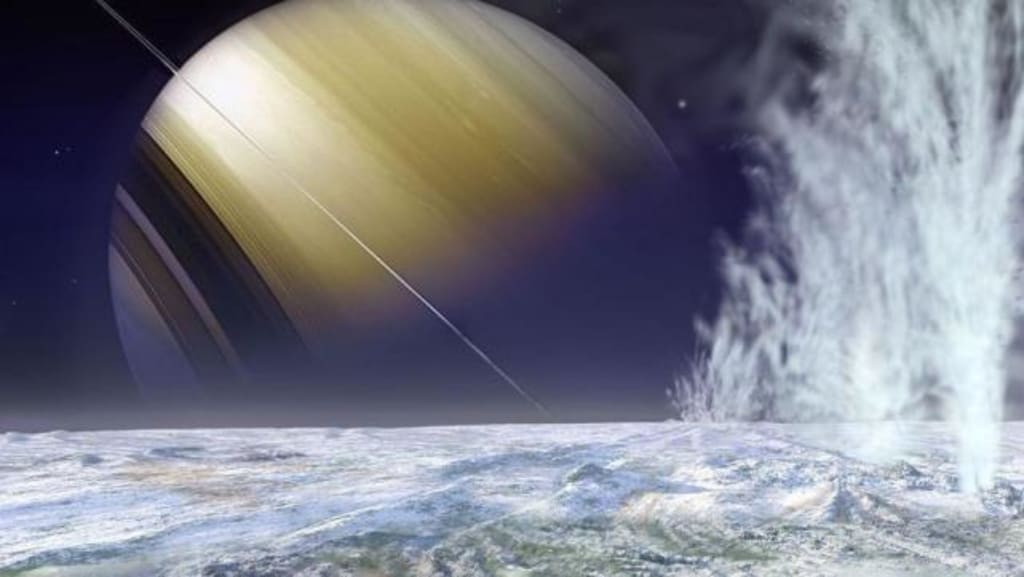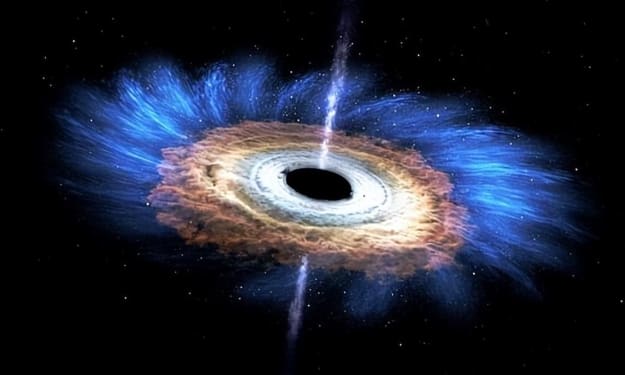
Since the 21st century, astronomers have discovered more and more to the outer planets and satellites, the distance is relatively close to earth, much attention has been paid to the family of Jupiter and Saturn's moons through continuous observation detector, astronomers have found more, and liquid and a liquid water ocean discovery is to let people determined the existence of extraterrestrial life.
For example, Jupiter's largest moon, Titan, it is the only satellite in the solar system with a thick atmosphere, atmospheric pressure is about 1.5 times the earth's atmospheric pressure, the closest distance to the Earth 1.5 billion kilometers.
In 2005, the Huygens probe landed on Titan and revealed a stunning view of an orange-red sky with a surface that looked more like a coastline, a strange world so far away and yet so close to our own!
NASA's probe of Titan will go one step further. In 2029, NASA plans to launch a small unmanned probe, along with a 600-kilogram hot air balloon, that will carry analyzers and cameras for a more complete exploration of Titan.
As the probe PASSES through Titan's atmosphere, it will analyze the composition of the material in it, and then collect the material on Titan's surface for chemical analysis, which will help us understand Titan more deeply.
Titan has a vast ocean of liquid methane, and the probe will also explore and sample the ocean more fully, which will then be analyzed by analyzers.
In addition to Titan, another moon that's also getting a lot of attention is Saturn's moon Enceladus. The surface of Enceladus is completely frozen, and under the ice there is a lot of liquid water in the ocean, which is being pulled by Saturn's powerful gravity and squirting out of the frozen cracks in a spectacular way.
But given that both Titan and Enceladus have extremely cold surface temperatures of minus 180 degrees, astronomers estimate that if there is life there, it is likely to be the most basic form of life, if not life at all. At the same time, the composition of Titan's atmosphere is very different from Earth's and the temperature is very low, so if there is life there, it is likely to be very different from carbon-based life on Earth.
While astronomers have used carbon-based life on Earth as a standard in their search for extraterrestrial life, that doesn't mean it has to be carbon-based. Maybe there are other forms of life on Titan and Enceladus that we can't even imagine!
In 2029, 24 years after Huygens was launched, a new unmanned mission will drop two new objects on Titan's surface, a 600kg hot air balloon and a small probe, all with cameras and analyzers inside to take pictures of the surface, Scientists will also use reflective technology to look at the bottom and surrounding material of Titan's craters. When down through Titan's atmosphere, will collect aerosols in the atmosphere, and then looking at how Titan's surface formation, as well as determine how organic chemistry structure, which will help scientists understand the complexity of the Titan organic chemistry and its degree has reached the same level of the earth, whether it is must to make macromolecules and gives life.
In the meantime, hot air balloons work in very cold, very dark worlds. That small probe will be sent to a hydrocarbon lake on Titan to reveal whether life exists. When the probe lands, the instruments will sample the liquid in the lake and then use all the equipment in the cabin to test the samples to determine what the atmosphere is made of and, on the other hand, whether there is liquid water on the surface.





Comments
There are no comments for this story
Be the first to respond and start the conversation.